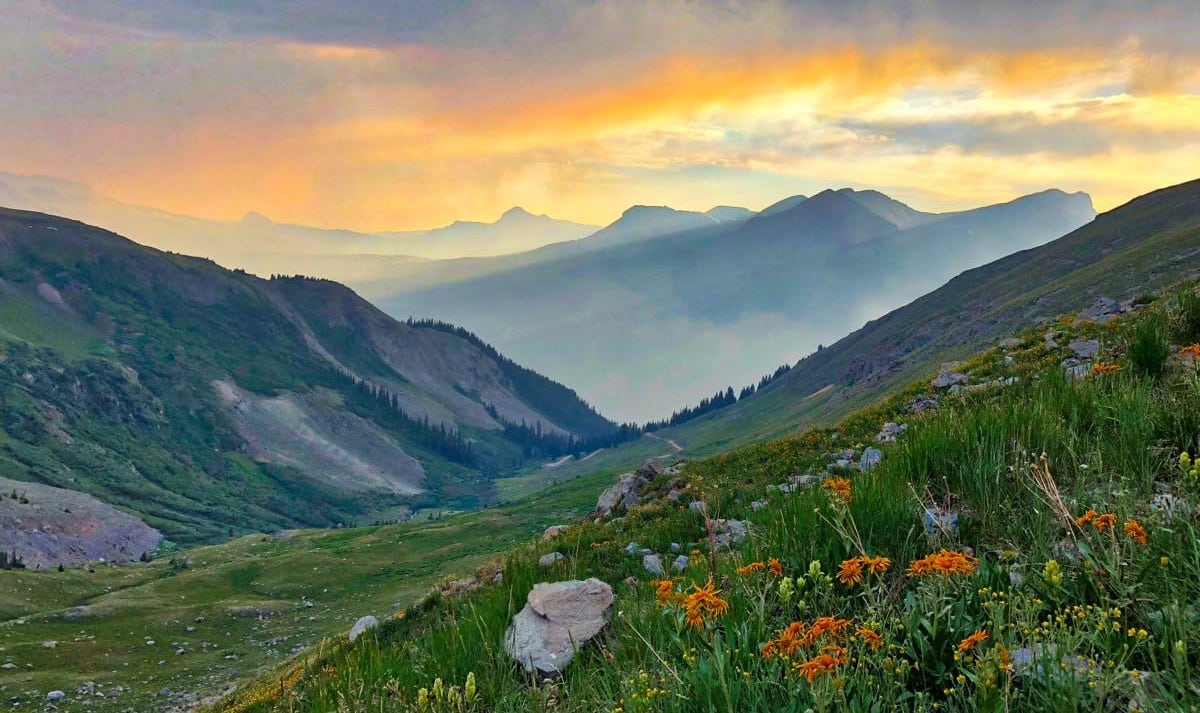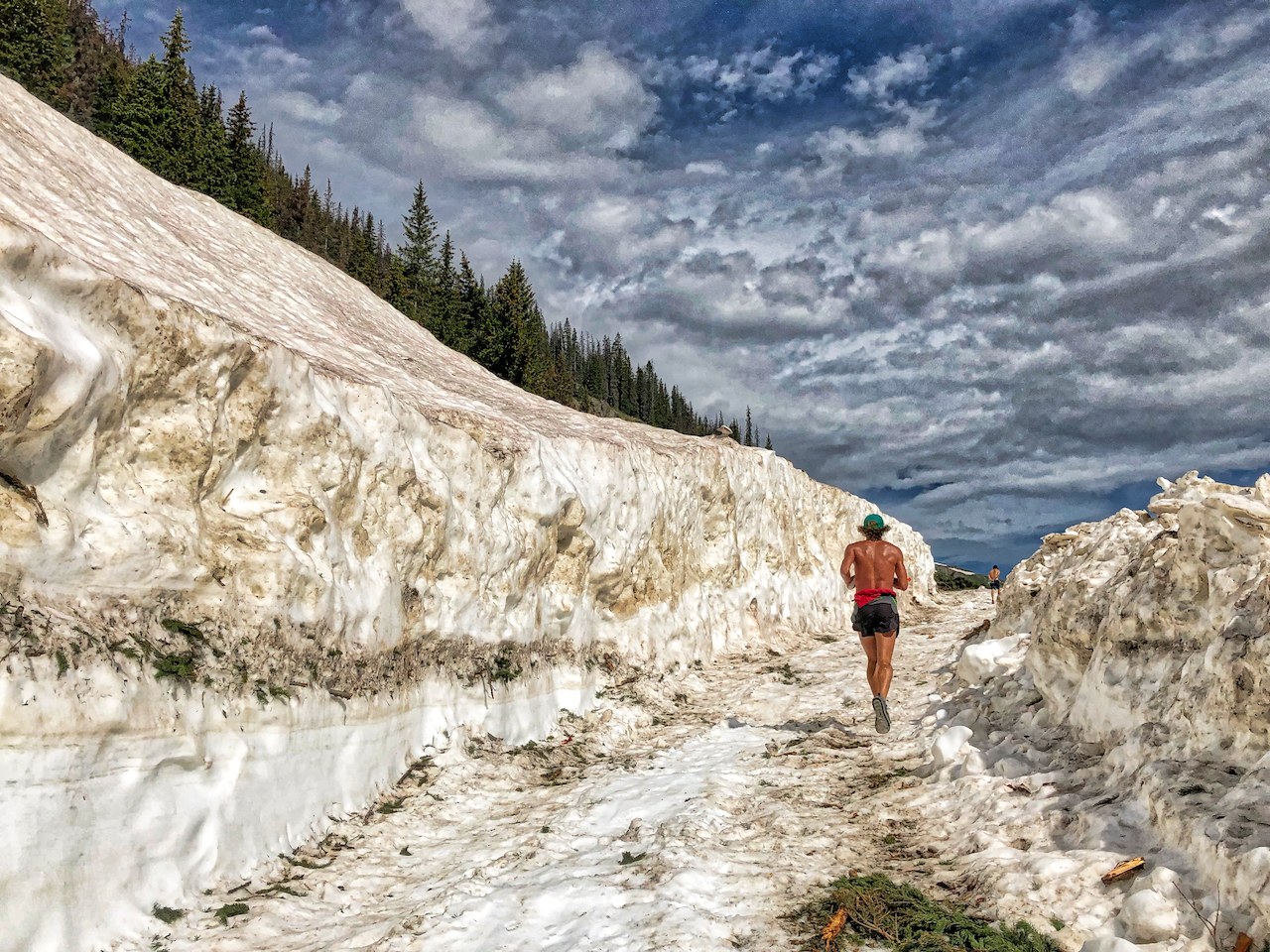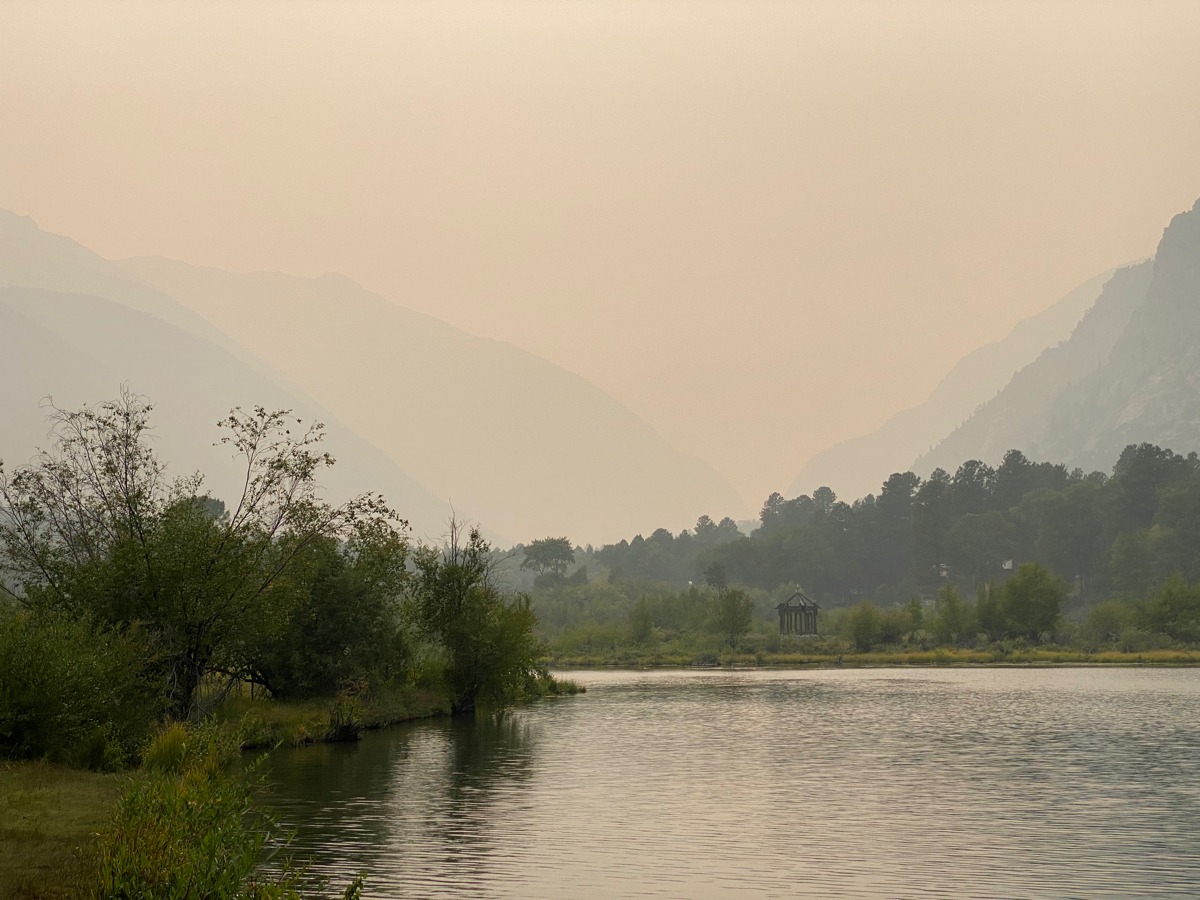For the majority of ultrarunning’s history in North America, race cancellations were the rare exception to the norm of races going on as scheduled. Yes, there were notable exceptions such as a fire year at the Western States 100, both fire and snow years at the Hardrock 100, and a smattering of other cancellations through the years.
Spring 2020 came in like a tidal wave, more or less clearing the calendar of events for many months due to COVID-19 cancellations. Spring 2021 saw the sport’s first mass tragedy with 21 runners dying due to bad weather at the Yellow River Stone Forest 100k in China. That stretch may mark a sea change when it comes to the frequency of ultramarathon cancellations in North America.
Personally, in the past four years I’ve been subject to race cancellations due to snow, military maneuvers, COVID and, just this past week, the Jemez 50 Mile in New Mexico due to wildfires raging in the area. More cancellations will come. Indeed, with a super-dry spring in Colorado, Meghan and I are both tempering our excitement that our focus 100 milers this season face the threat of wildfires near and far.

A smoky view from Kendall Mountain in Colorado when wildfires threatened cancellation of the 2018 Hardrock 100. All photos: iRunFar/Bryon Powell
Who to Consider in Possibly Canceling or Postponing a Race
There are myriad reasons why a race organization might cancel or postpone (henceforth, I’ll simply refer to cancellations) an event. So many that I won’t try to enumerate them all, but I’d like to take a look at the groups a race organization must consider when deciding to hold or not to hold an event as scheduled.
Racers, Volunteers, Pacers, and Crew
The most obvious and immediate people of concern when canceling a race are the runners and all the other people put in remote locations to support those runners. It’s well within reason for … and, heck, the responsibility of a race organization to consider all of the people it might be putting in harm’s way.
All I mean to point out is a good race organization aims to keep the vast majority of the broad family of race participants reasonably safe, knowing and accepting that an isolated injury is par for the sport.
First Responders, Public Lands Agencies, and Other Non-Race Personnel
If you’ve got any connection to or awareness of public lands agencies, you know that they tend to be ridiculously understaffed. Add in an even semi-local emergency, such as a wildfire, and agencies that are already stretched too thin no longer have any wiggle room to monitor even a well-run event let alone respond to an avoidable emergency situation.
The same goes for first responders such as emergency medical technicians or search-and-rescue teams. In such situations, a race cancellation allows agencies to dedicate all resources to the emergent tasks at hand with no need to account for an event that puts hundreds of people into the backcountry.
The Race Organization, Itself
The vast majority of ultramarathon organizers in North America are or were ultrarunners themselves. Even in cases where the race is owned by a corporation, the race is almost certainly put on by ultrarunners. First and foremost, these organizers are community members who care about their fellow community members. The positive care and risk of lifelong guilt must certainly be part of a race organization’s calculus in putting on an event in what could be unusually dangerous conditions.
Presumably, the organization also cares about the race’s existence. Even if participants come out unscathed, if a race ends up putting numerous runners or others in exceedingly dangerous conditions, any permitting agencies may certainly consider that in revoking or failing to reissue any necessary permits in subsequent years. These permitting agencies cover broad swaths of land such that a race denied a permit would likely have to move far enough that it would fail to be the same event in the future.
And, waivers be damned, who’d want to put themselves in the face of months or possibly years of litigation, even if fully and impenetrably insured, just to put on a race?

Deep snow in the Animas River’s valley floor on the Hardrock 100 course in July 2019, less than a week before the canceled 2019 Hardrock would have been run.
What Races Can Do Regarding Possible Cancellations
I’m not in the race directing business, so I can’t speak to what should go on behind closed doors, but I can speak to what feels good from a participant’s perspective.
- Spell Out Reasonable Cancellation Risks — If there’s a 5% chance that a certain condition could cancel an event in any given year, spell that out on the race website. For example, if you’re a race in the intermountain west that’s not 100% on snow, local wildfires or wildfire smoke are on your list. Simply let runners know there’s always a real, if small, risk that a race won’t happen.
- Spell Out Your Cancellation Policy — Whether or not a race has a single persistent risk, COVID cancellations should have taught us that we don’t always know what may trigger a race cancellation, so might as well be prepared. This needed to be fully detailed, but let folks know they’re likely not to get a full refund (and possibly no refund) and if there’s a set racer rollover policy, especially in full-capacity races.
- Communicate Clearly about Possible Cancellations — Whether a legitimate risk of cancellation arises a month in advance or two days before the race, shortly after such a possibility emerges, let racers (and the rest of the race organization) know what the condition is, what factors weigh for or against cancellation and, if known, when any decisions will be taken. Also, to save a lot of questions, it might be wise to lay out or link to the cancellation policy.
- Cancel Sooner Rather than Later — Obviously, everyone involved in a race would prefer for it to go on as planned. Lots of time and resources have gone into it from all sides. However, once it’s much more likely than not* that the right call is a cancellation, go ahead and cancel. People can make other plans. People can get back some travel expenses. People can stop hemming and hawing. And, the race itself can limit expenditures of time, money, and stress. If it’s going to take a miracle for the race to go off safely, it’s probably better not to wait for that miracle.
* I don’t know what that percentage is … and it certainly evolves as the race date approaches.
What Racers Can Do
- Be Understanding. Be Kind. Be Supportive. — As laid out earlier, race directors and organizations are part of our community and, for so many reasons, the last thing they want to do is cancel a race. If they’ve already had to make a difficult decision, be kind and be understanding. Early in the COVID crisis, AJW wrote this piece In Support of the Race Director During Crisis, and it rings just as true for all reasons for race cancellations.
- Pass on a Refund, If Possible — If a race is canceled and offers a full or partial refund, consider if you’re in a position to waive that refund. Whether it’s continuing to promote that race’s mission or putting it in a better position to put on a great race the subsequent year, you can make a difference. (This is NOT the right call for everyone, but it’s worth the consideration!)
- Turn Lemons into Lemonade — The concentration of cancellations early in the COVID pandemic provided numerous inspiring examples of runners making lemonade out of the lemon that is a race cancellation; however, this phenomenon is nothing new. Such was the case when the 2008 Western States 100 was canceled due to wildfires; people made lemonade then, too.
Wrap Up
As I wrap up this article, I wish race organizers clear consciences and understanding runners in the face of difficult decisions of whether or not to cancel races. To the Jemez Mountain Trail Runs crew down in Los Alamos, New Mexico no matter the refund policy for this year’s race, keep my full entry fee and put on one heck of a race the next time conditions allow. I’ll run some miles for you up here in Silverton, Colorado that weekend.
Call for Comments
- Race directors, how have you handled the decision to cancel (or not) your event when in a difficult situation, particularly outside of the context of COVID?
- Runners, if you’ve been subject to a race cancellation, what steps have race organizations taken that made you feel good about the process?

